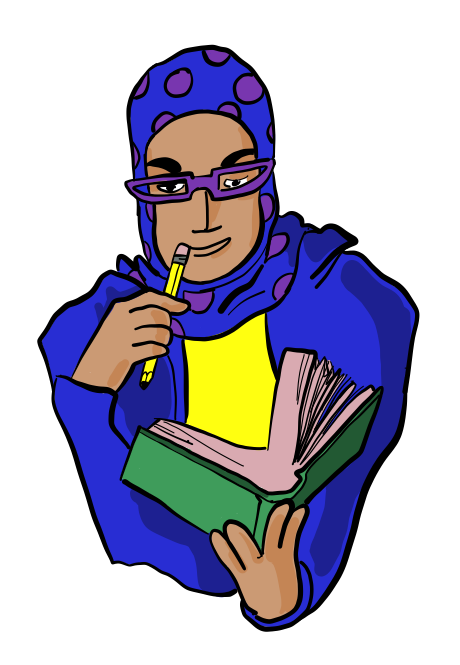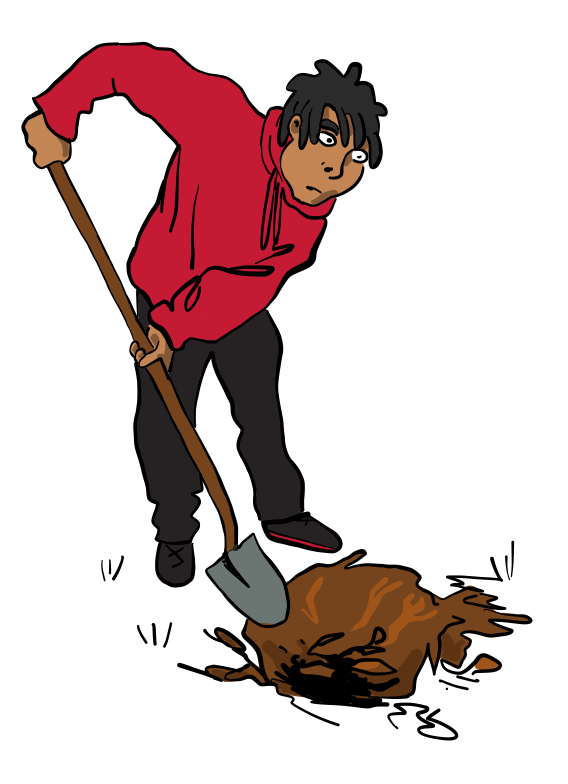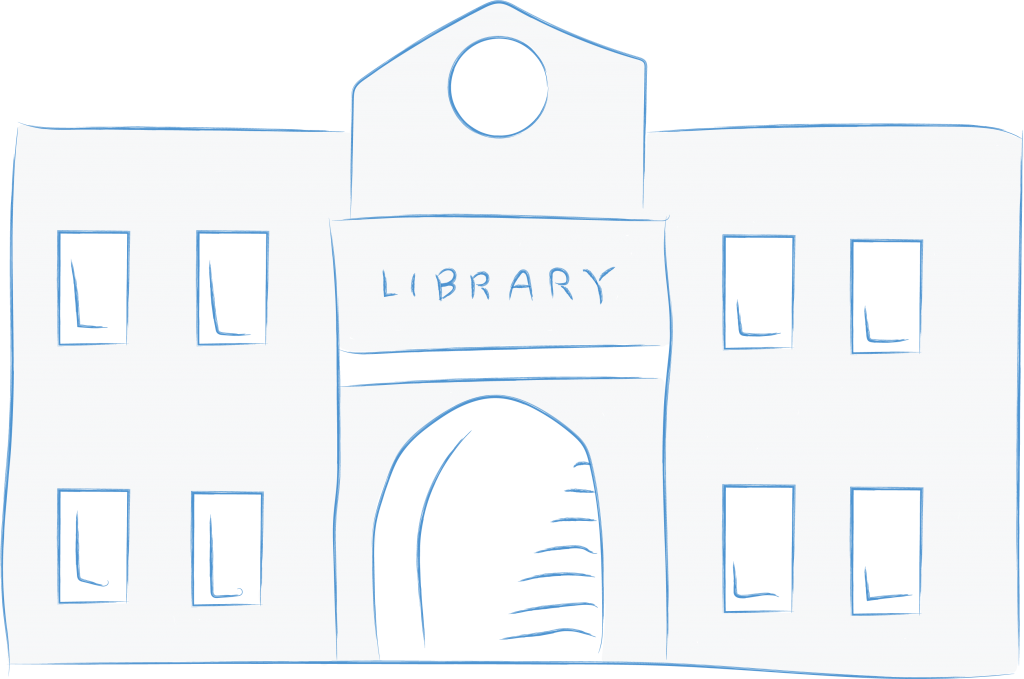

It’s true that most information can be found with a gesture of your hand, or a simple voice command [or search] from your phone. But some things –– if you want to dig deeper –– take more research and time. Being an engaged citizen also means being an informed citizen.
It’s important to do your “due diligence” on the issues you care about, meaning taking the time to learn more about the history of that issue; understanding who the key players are as well as the major arguments and proposals on the issue. The good news is the City of Detroit has a wealth of resources for you to explore.
Finding Information Step By Step
Say for instance, as with many Detroiters, you need to rely on public transportation to get around the city. Bus schedules, routes and stops, prices and transfer policies –– when you go to one route to another without having to pay the full price each way –– are important to know.
Where would you look if you need to learn more about the bus system? One place might be the Michigan Department of Transportation (MDOT), which covers the state of Michigan, but you would want to refine that search by also looking into the Detroit Department of Transportation (DDOT).
However, if you’re wondering about how public transportation is funded or how Detroit’s public transit connects with transit in other cities, remember that Detroit’s government works with Michigan’s Government and the U.S. Government. So, you have to explore beyond DDOT to gather complete information.
First, review the services that the City provides in Responsibilities to make sure the city covers your concerns. By reviewing budget and policy documents for those departments you can determine how the service is connected to other governments and determine which level of government your concern is best addressed by.
| Do other departments affect the bus system? The Department of Public Works is in charge of traffic control systems and infrastructure, such as street maintenance The Planning and Development Department handles planned streetscape improvements and new areas for bus stops |
Contacting Your City Services and Departments
City of Detroit departments all have offices you can visit in person as well as phone numbers and email addresses you can use to contact staff. When doing your research, you can start by reaching out directly or visiting the “departments” page on the city website. Familiarize yourself with the city website so you know what it offers and how it can be useful to you.
Here are some steps to consider using the issue of Transportation:
- See what’s online
- Read the website and social media of DDOT to get an overview of content. You’ll find a lot of information from your phone, tablet or computer.
- Hear directly from staff
- Send questions or schedule a meeting with department staff
- Attend DDOT Advisory Commission Meetings and hear the reports from staff. People like the Assistant Director of Maintenance will speak about their work
- When you meet staff, personally ask them for a business card to receive some reports, facts, or for further contact
- Identify a community connection
- The Detroit Department of Transportation Advisory Commission is made up of individuals who are advocates with transportation expertise. Reach out to these individuals.
Look closely at your issue –– chances are, multiple City departments deal with it. The Department of Transportation handles bus service and routes; the Planning Department works on “streetscapes,” designing where benches and special lanes on the road will go; the Department of Public Works actually implements bus lanes and bike lanes. The most important thing to have is patience. Although these departments are eager to assist in helping you find the information you need, just understand that there might be wait times and you may also have to follow-up to have your questions addressed.
Contact Your Public Boards, Commissions, and Authorities


Don’t overlook independent boards that oversee or advise much of city government.
Detroit City Government has at least 21 boards and commissions that look after the pressing needs of citizens and government. Board members are appointed by elected officials in the city.
In Responsibilities we discussed how Boards and Commissions are connected to the responsibilities of Detroit’s government. Boards and Commissions are groups of local residents appointed to volunteer (with the exception of the Board of Police Commissioners which has elected and appointed members) to support city government functions. Similar to boards and commissions, there are also public authorities which are “special purpose” local governments and typically represent regions. The Michigan Constitution allows for them to be established and provide a particular service. These regional or specialized boards include the City of Detroit but aren’t directly in the City Charter or involve work with organizations outside of the city. The Great Lakes Water Authority for example, became responsible for water distribution and sewerage for Wayne County (Detroit), Oakland County, and Macomb County in 2014.
Local Governance and The Open Meetings Act
The Open Meetings Act (OMA) is a state law that creates requirements for local governments and their boards and authorities. City Council, the Board of Police Commissioners, and the School Board all have to follow the OMA along with other governing bodies that create policy for the city. The OMA ensures that we can access information about the policy decisions our local government is considering and acting on. The OMA requires that board meetings are open to the public and the meeting materials are available to the public as well. The only documents that are not publicly accessible are documents related to open legal cases (which are publicly accessible at the conclusion of a case) and certain employee information that is confidential for privacy reasons.
The OMA requires:
|
The OMA ensures you can find information by attending the public meetings and by reviewing the materials from the meetings: the agenda, showing what’s planned for discussion and action; the attachments which, among other things, can include contracts and program plans; and after the meeting concludes, the meeting minutes where you can find all of the action taken by whom.
Board and Authorities each have their own methods for noticing meetings. Information about City of Detroit meetings can be found by contacting the City Clerk’s office and many are posted on the City of Detroit’s event calendar. The Detroit Public Schools Community District posts meeting notices in schools and on their website, plus uses a website called BoardDocs to make all meeting materials available. Contact the board or authority you’re interested in directly for their event calendar and information about how to access their meeting materials.
Do you want consistent notice of a board’s meetings? The OMA has it!
“A public body must send copies of the public notice by first class mail to a requesting party, upon the party’s payment of a yearly fee of not more than the reasonable estimated cost of printing and postage.”
The OMA is intended to serve the needs of the public. Learn more about its requirements and hold boards accountable by reviewing the State of Michigan OMA Handbook.
The Regional Transit Authority (RTA) is a board seeking regional systems of transportation, including DDOT, SMART buses and other modes of transportation. They are an excellent board for you to take a look at.
- Explore if their board minutes and agenda are online. These can point to policy that DDOT will be a part of.
- Visit a board meeting to see the decisions being made first-hand.
- Speak during Public Comment*
*Tips on testifying and making public comment are in Building Support
Code of Ordinances – The Law of the Land


Ordinances are our local laws and they are compiled in our Codes of Ordinance. Remember our city laws are primarily passed by City Council, or can be created by a public initiative.
Ordinances that are passed by City Council are developed with support from the Law Department, must be certified by the City Clerk, and implemented by the departments that are impacted (with the mayor’s oversight). For example, a new noise ordinance would be implemented by the Detroit Police Department, whereas an ordinance on affordable housing would be implemented by the Housing and Planning Departments.
All of our city ordinances are publicly accessible through the Law Department and an online service, Municode. Use Municode and search for any topic of your interest.
A search for ‘Transportation’ will pull up all of the laws related to transportation including the section of our city charter that mandates the Transportation Department and defines its responsibilities (Part 1, Article 7, Chapter 11). That same search also shows Ordinance Number 31-18 which establishes how much bus fare costs. By reading the ordinances on transportation, you now know the most important thing about the Department of Transportation – the laws or ordinances that govern it.
Dig deeper on Municode and look up ‘bus system.’ What laws do you find?
The Government is Responsible for Sharing Information
Many people talk about “transparency” and government or the ability to see everything that our leaders and lawmakers do. There are laws that support transparency in government and engaged citizens can take advantage of.
Transparent (trans per’ent, -par-’) adj. 1. capable of being seen through 2. easily understood; very clear
Often used as a verb, such as “I FOIA’ed (pronounced FOY-YA’d) the records,” FOIA is an acronym for the Freedom of Information Act and to FOIA information is to request it from a government agency. This 1966 federal law requires Federal Government Agencies to provide nearly all public information in specific levels of detail. The law ensures a deep openness of government to individuals, the press, businesses, universities, and others. FOIA helps make the government’s inner workings transparent to its citizens in the hope that citizens will then be more empowered to fulfill their role in holding the government accountable and free of corruption, nepotism, and other ills born of secrecy and an abundance of power (remember when we talked about Accountability?).
While FOIA is a Federal Law, the State of Michigan adopted a supporting state law, Michigan’s Freedom of Information Act (MCL 15.231 et seq) and per the city charter Detroit follows that same Freedom of Information Law (Detroit City Charter, Sec. 2-112).
FOIA can be beneficial to getting the information you need, but its isn’t quick, free, or easy.
If you need details that you can’t find already published by city officials, then you need FOIA.
Examples of information you can FOIA:
- Home demolition statistics by neighborhood, street, or cost
- Specific police reports
- Number of Detroiters served by specific Recreation Centers
- City business dealings with a specific company, including email correspondence
Each level of government has a specific office that accepts FOIA requests. In Detroit, requests are submitted to the FOIA Coordinator in the Law Department. Requests are made by submitted a form and a specific description of the report being requested. Additionally, people FOIA police records so often, that there is a separate form and process for those records. Learn more about submitting a FOIA request here.
Other Places to Find Information
Detroit’s Open Data
Mayor Duggan’s Executive Order 2015-2 established the “Open Data Initiative” which ordered city departments, agencies, boards, and commissions to evaluate and release any data possible to the public. This initiative led to Detroit’s Open Data Portal, where you can find information ranging from meeting minutes to water testing results organized into eight categories:
| Government | Property and Parcels | Transportation | Boundaries |
| Public Safety | Education | Public Health | Permits |
Additionally, there are special tools offered such as Open Checkbook (the city spending tool we reviewed in Collecting and Spending Money) and the Crime Viewer, a tool that maps types of crimes and where they occurred.
This initiative is tied to the executive order of a particular Mayor, so the election of another Mayor could result in discontinuing the service. If you wanted to see it continued, engaged citizens would need to advocate for it.
What do we mean by data?
Data is another word for facts. It’s information that can be used to make decisions. There are two types of data: qualitative data and quantitative data. To explain the difference we’ll use the example of a survey. A survey question asks you “how are street conditions in your neighborhood?”
Your answer describing some pot holes and other streets in good condition is qualitative data or data that is based in words, sentiment, and anecdotal summaries rather than confirmed numbers. It’s an individual’s story.
The number of people who respond saying the streets are in good condition is quantitative data or values based on things we can count and measure. When analyzed, these data are often thought of as statistics and allow us to see a big picture across a lot of information or many experiences.
Knowing the difference between these two types of data helps you make stronger arguments for support.
Community Meetings
As we discussed in the Envisioning Community, one of the jobs of the Department of Neighborhoods is to keep a list of all the community organizations and community meetings within council districts. Community meetings are great places to meet new people, hear presentations from city officials and staff, advocates, and subject experts, and find direction on your search for information. For example, there are community led meetings supported by police precincts where community members meet at their local police precinct and are able to connect with the officers of that precinct. Or during elections, political candidates will visit neighborhood meetings to ask for support and share information about their campaigns. You can start with city hosted meetings which can be found on the City of Detroit event calendar, meet people there and learn about other meetings; or you can contact your Neighborhood Manager for information about all the community organizations and meetings in your neighborhood.
Contact Your Local Library


Libraries are important centers of information and critical to our democracy. Libraries are centers of free information: history, law, resources, and more.
In Detroit, you have access to any of the 23 branches of the Detroit Public Library (DPL) as well as access to the five Wayne State Libraries. With a DPL library card you can check out books to take home, access online resources, as well as film, music, and other resources. If you’re not a Wayne State student, you can still visit the university’s libraries and review books and other information there. As a DPL Library card holder, you can also sign up for the MILibrary Program which allows you to check out books from the Wayne State Libraries (and participating libraries across the state). These are both organizations that you not only have access to but influence over. Before we go into using them to find information, let’s cover how you have influence over the two.
The Detroit Public Library is a publicly funded, independent organization governed by a library commission board of seven people. The commissioners are appointed by the Detroit Board of Education—whom you elect! One of the seven members is the Detroit Board President. School Board members are elected every two years and the Board President is selected by the board members every year.
Wayne State University is a public (meaning partially or primarily funded with public dollars) University in Detroit governed by a board of eight elected members. They each serve eight-year terms. Similar to the Detroit Board of Education for the Detroit Public School Community District, the Wayne State Board of Governors oversees the policy and finances of the university.
So now that you can see your connection to these two library systems, how might you use them to protect or improve your neighborhood?
Libraries have collections of information organized by subject. The DPL has the Burton Collection which is dedicated to the history of Detroit. Wayne State’s Walter P. Reuther Library has a collection on “Labor and Urban Affairs.” Librarians within libraries can help you conduct your research and point you in the right direction. Additionally, the DPL has a paid newspaper search service that uses DPL staff to search collections of historical newspapers and a community information and referral service that will help connect you to resources and services.
Library collections are often online, meaning you can access electronic versions of books, magazines and other media. The Detroit Public Library system uses both the Libby App and the Hoopla media service to borrow books digitally. Just walk into your local library and explore, librarians can also help you navigate the internet to find any information you might be looking for.
Experienced Nonprofits
Detroit is filled with small to big organizations working on and attempting to represent the needs of Detroiters. The public radio station, 101.9 WDET mapped them in 2012, finding 247 groups in their Call to Action drive. If there is a solution needed, there is likely a non-profit addressing it. If you’re looking for information, reach out to the reputable organizations for information on your community’s topic. Find the established non-profit that covers your informational needs.
This Citizen Manual was developed the non-profit CitizenDetroit, an organization dedicated to civic education, empowerment, and civic participation. Other organizations have missions with different focuses.
Here’s a useful list:
- Jefferson East – a community organization supporting economic development on East Jefferson
- SER-Metro Detroit – an organization providing programs to support education, employment, and community development
- Focus HOPE – an organization offering food support, employment training, and youth programs
- ACCESS – an organization serving the Arab American community with employment and education support
- Community Development Advocates of Detroit (CDAD) – a membership organization that supports non-profits across the city
- Black Family Development – a citywide organization with youth and family services ranging from education to mental health
- Detroit Hispanic Development Corporation – a community center with afterschool programming, job training, and family education services
- Eco-D – an environment and climate focused initiative
These groups handle people problems and have an historical presence that may enable them to provide valuable data on the issues you care about.
There are also organizations that are more closely entwined with the workings of the city. The Detroit Economic Growth Corporation (DEGC) is a non-profit organization that has worked with the city on business development and real estate since 1978. It provides direct services to the city and administers certain programming on behalf of the city such the Motor City Match program, a small business investment program that connects business owners with space (buildings, offices, etc.) for their businesses as well as funding.
Final Thoughts
Remember that part of being an engaged citizen is knowing –– and understanding –– how to take advantage of the variety city services available to you. This means taking the time to be an informed citizen. We are rarely the first people to care about our chosen issues and rarely the first people to take action on them. Next, in Building Support we’ll talk about connecting with others. When you begin your work and start to connect with others make sure you have done your research and gathered information that you can share. This way you’ll be able to do more meaningful work, more accurate work, and work that best addresses the issue you’re facing.
Lesson Review
In this lesson we discussed finding what you need to inform your community work and civic engagement. The quality of your work is dependent upon the quality of your information— for example, is it accurate? Is it complete? Write a short essay on what it means to you to conduct good research and how you’ll make sure to collect the information you need to be an engaged citizen.
